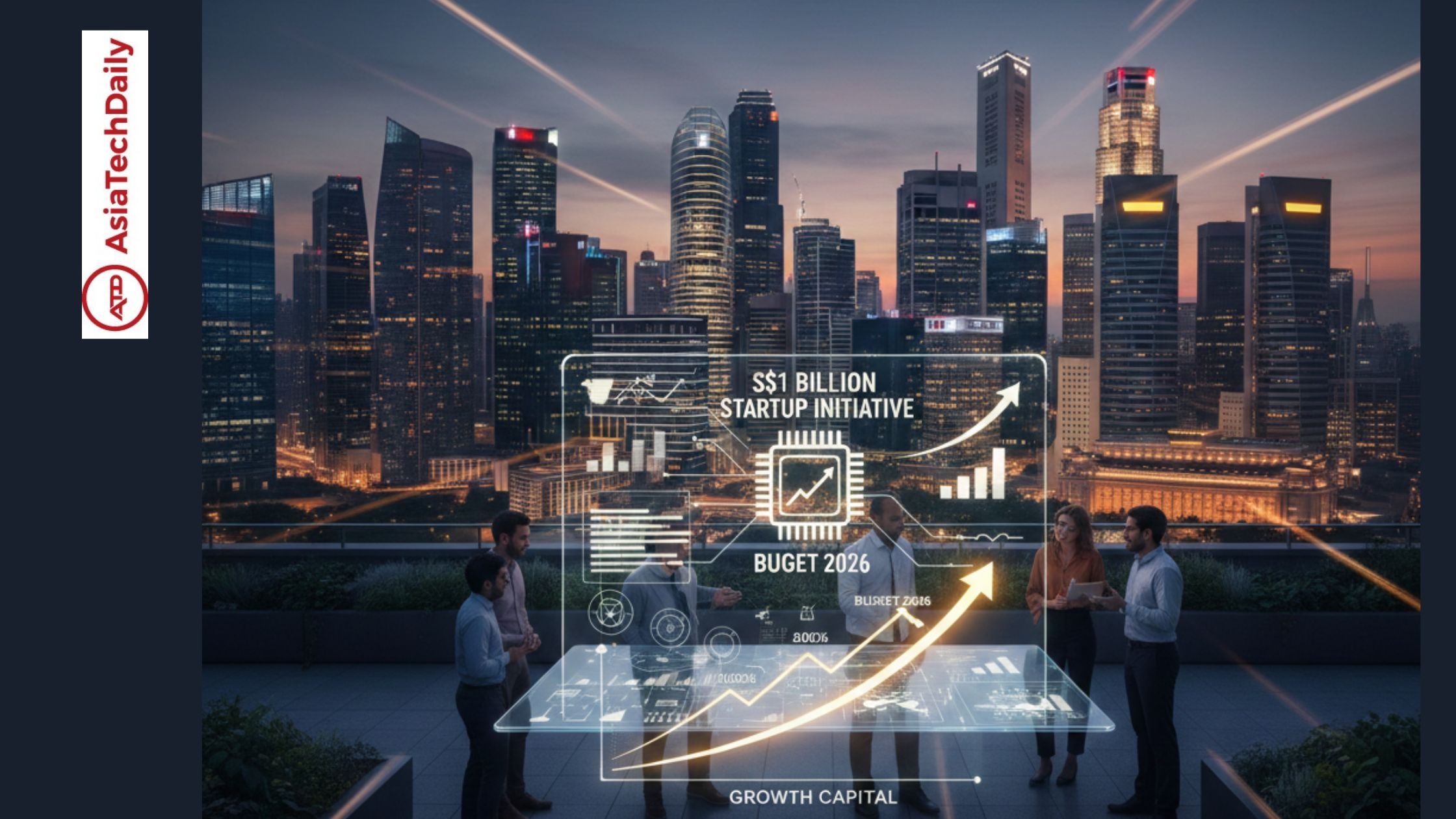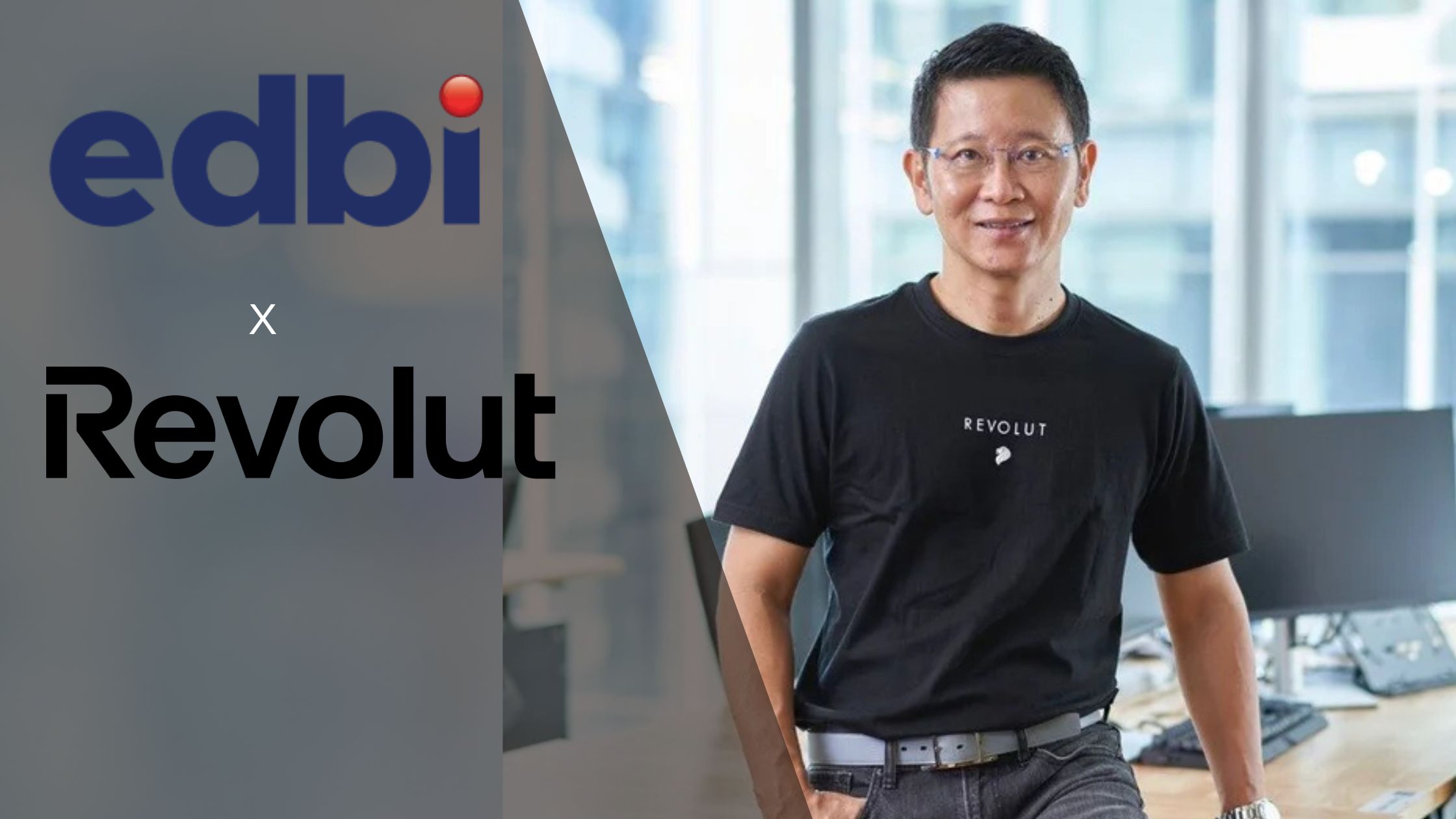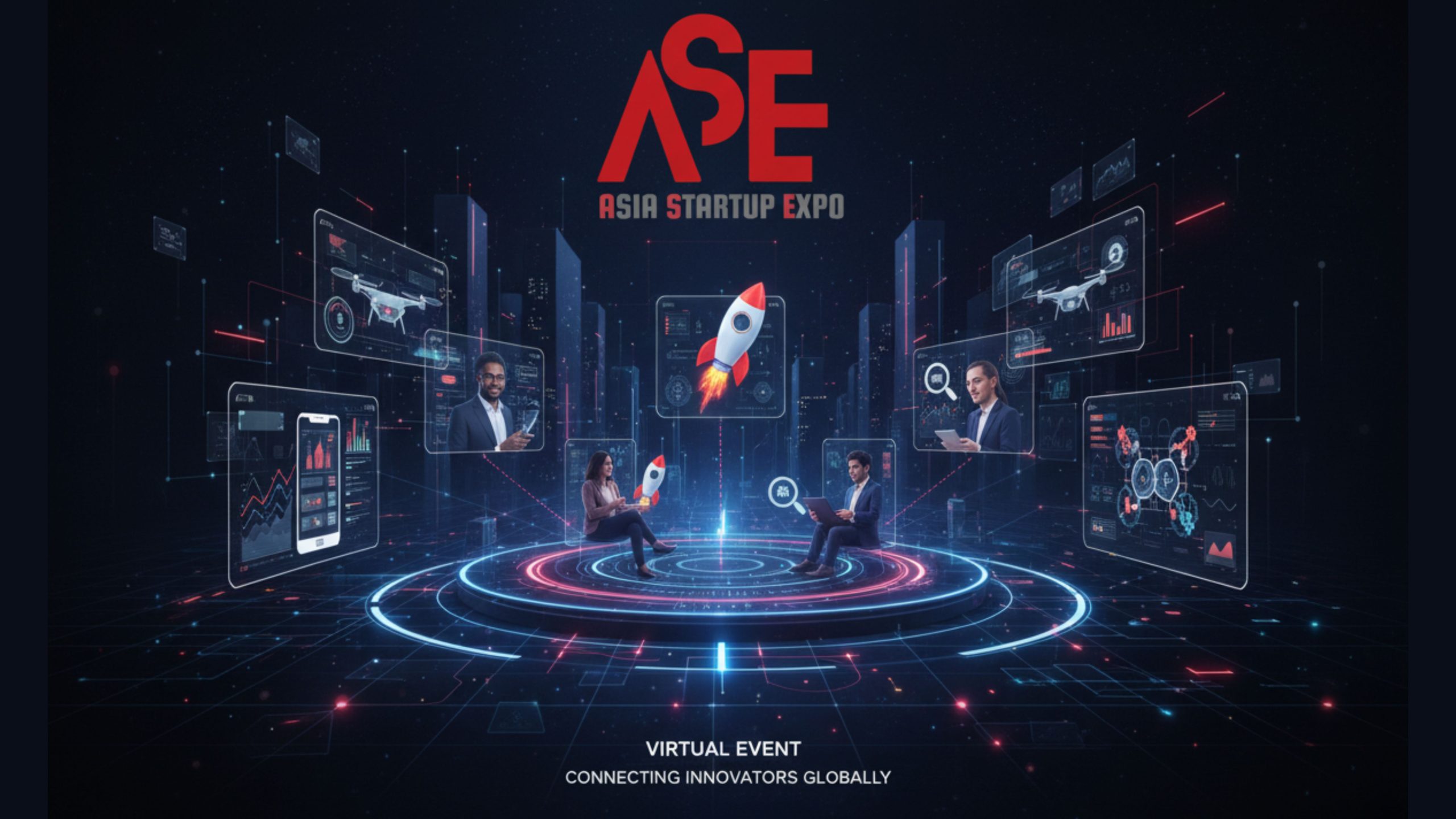AsiaTechDaily – Asia's Leading Tech and Startup Media Platform

SWITCH 2025 Highlights Singapore’s Decade as Asia’s Launchpad for Deep-Tech Growth
At the 10th edition of the Singapore Week of Innovation and Technology (SWITCH), Singapore reaffirmed its position as the region’s most connected hub for startups, research, and global collaboration — marking a decade of deep-tech progress and a future built on cross-border partnerships.
Amid rapid shifts in global tech and investment trends, Singapore Week of Innovation and Technology (SWITCH) 2025 emerged as one of the defining stages for Asia’s innovation ecosystem this year. Bringing together scientists, entrepreneurs, policymakers, and investors under one roof, the three-day event offered a panoramic view of how technology, creativity, and collaboration are shaping the region’s future.
Held from October 29 to 31, 2025, at Marina Bay Sands, SWITCH brought together over 20,000 innovators, 400+ exhibitors, and delegations from more than 30 markets. The event coincided with two milestones — Singapore’s 60th year of independence and SWITCH’s 10th edition — highlighting how deeply the city-state’s innovation narrative is intertwined with its national identity.
Organized by Enterprise Singapore (EnterpriseSG) and supported by the National Research Foundation (NRF) under the Prime Minister’s Office, SWITCH 2025 was not just another conference. It was a statement of intent: that Singapore will continue to anchor Asia’s innovation corridor and connect research to real-world application.
The Year-Long Ecosystem Behind SWITCH
Though SWITCH’s three-day event serves as its centerpiece, the programme extends well beyond October. The SWITCH 2025 Event Guide highlights its transformation into a year-round innovation platform that links startups, corporates, universities, and investors through global programmes and exchanges.
In the lead-up to the main event, SWITCH hosted Lab Crawls on October 28, giving delegates an insider look at Singapore’s R&D ecosystem. Participants toured key facilities such as Biopolis, Nanyang Technological University’s Innovation and Enterprise Office, and A*STAR’s Advanced Remanufacturing and Technology Centre, where they met researchers commercializing technologies in health sciences, materials, and robotics.
Several co-located events also complemented the main conference, including the Singapore Global Investor Summit, the Asia Deep-Tech Venture Conference, and She Loves Tech Singapore 2025 — each reinforcing SWITCH’s growing global network.
This holistic structure positions SWITCH not as a once-a-year expo, but as a living ecosystem that nurtures innovation from idea to impact.
Singapore’s Deep-Tech Playbook
Over the past decade, Singapore has refined its innovation model around three priorities: science-based enterprise, global connectivity, and commercialization speed. SWITCH 2025 embodied these priorities across four main stages:
- Main Stage — Visionary keynotes and national strategy announcements.
- Global Stage — Market-access sessions and international collaboration.
- Beyond Stage — Deep-tech showcases, technical panels, and domain tracks.
- Converge Stage — Policy and ecosystem dialogues connecting academia, government, and industry.

Day 1: From Vision to Execution: Deep-Tech at the Core
The first day of SWITCH 2025 set a confident tone. Deputy Prime Minister Gan Kim Yong opened the conference by reaffirming Singapore’s commitment to bridging scientific discovery and market application.
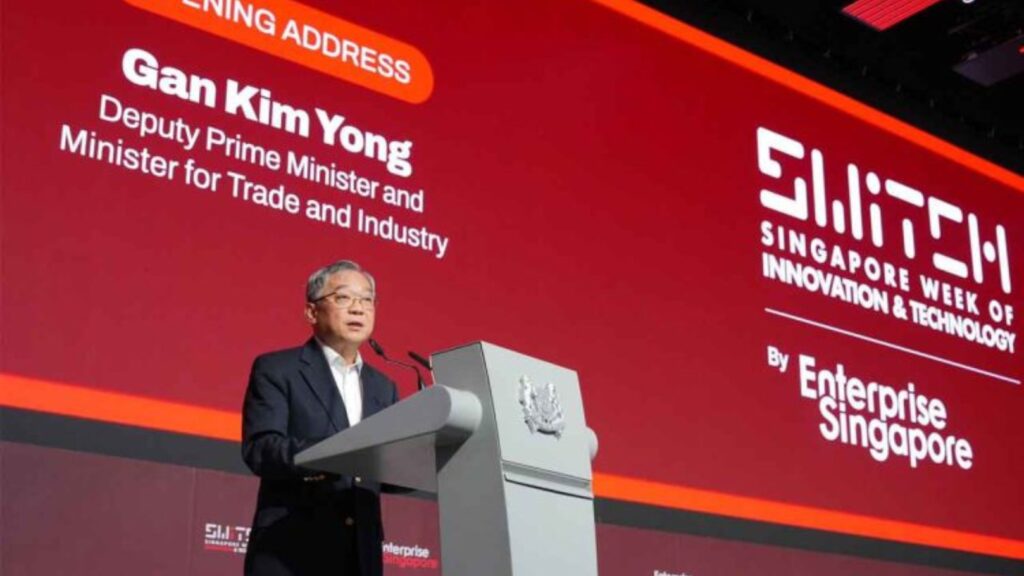
“Singapore’s goal is to turn research into solutions that improve lives,” Gan said. “SWITCH is where that translation begins.”
The Main Stage featured a keynote by Tao Zhang, Co-Founder of Manus AI, whose presentation “Agentic AI: The Next Frontier” explored how autonomous, reasoning AI systems will reshape manufacturing, logistics, and decision-making.
“We are moving from AI that answers to AI that acts,” Zhang noted, stressing the need for responsible frameworks as AI takes on greater autonomy.
Parallel sessions in the Transformative Digital Technologies track covered AI ethics, digital twins, and data governance. Meanwhile, the Beyond Stage hosted panels on quantum communication systems, AI for materials discovery, and precision manufacturing — highlighting the practical deployment of deep-tech solutions.
At the Global Stage, startup agencies from Korea, Japan, and Singapore discussed regional expansion strategies, reinforcing the idea that Singapore is increasingly the preferred bridge between Northeast Asia and ASEAN.
The day closed with networking receptions organized by EnterpriseSG and SGInnovate, drawing a mix of investors and founders to discuss pilot collaborations.
Day 2: Collaboration, Commercialization, and Creativity
Day 2 captured the dynamic intersection of technology, sustainability, and business partnerships.
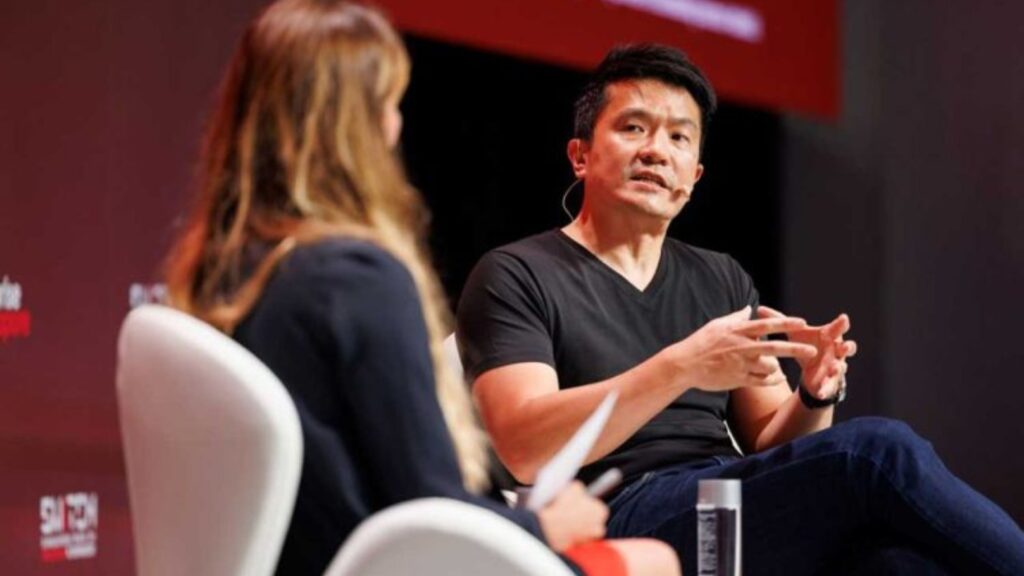
The morning opened with Tan Min-Liang, CEO of Razer, speaking on “AI and Human Creativity.” “AI is a tool to amplify creativity,” he said. “The challenge now is how we use it responsibly.” His remarks resonated with panels across the Health and Biomedical Sciences and Environment & Green Technologies domains, where speakers discussed the balance between innovation speed and ethical deployment.
A major highlight was the launch of JAPFA’s AI & Quantum Computing Centre of Excellence, developed in partnership with EnterpriseSG, Singapore Institute of Technology, and quantum startup AngelQ. The centre aims to use AI-powered imaging and quantum optimization to improve food-quality inspection and supply-chain efficiency — an example of deep-tech driving sustainability.
Another milestone came with the EnterpriseSG–Medanta MoU, enabling Singaporean health-tech startups to collaborate with one of India’s largest hospital networks. This agreement allows local innovators to conduct clinical validation through Medanta’s ecosystem, fast-tracking entry into South Asia’s healthcare markets.
On the Beyond Stage, the “Fueling the Energy Transition” panel gathered experts from Aether Fuels, CRecTech, and Octayne Green Fuels to explore the conversion of agricultural waste into sustainable aviation fuels. At the same time, the AI for Materials Science domain demonstrated how AI algorithms can accelerate materials discovery — cutting R&D timelines for semiconductors and batteries.
By afternoon, the trade floor was at full capacity. Delegations from over 30 countries held business-matching meetings, while startups showcased prototypes across robotics, biotechnology, and green materials. The Korean, Japanese, and Nordic pavilions drew heavy traffic, underscoring Singapore’s magnetism as a neutral platform for Asia-Europe collaboration.
The day ended on a creative note with KOCCA Night Singapore, hosted by the Korea Creative Content Agency (KOCCA). The networking event brought together Korean content-tech founders, investors, and regional partners — extending SWITCH’s reach beyond deep-tech into the creative industries.
Day 3: Scaling Up and Building Global Networks
The final day of SWITCH 2025 focused on scaling startups and mobilizing capital for deep-tech ventures.
Chris Yeh, co-author of Blitzscaling, delivered a keynote on growth in the AI era.
“Mediocrity is now free,” he said. “What matters is clarity — knowing what you’re truly trying to build.”
The SLINGSHOT 2025 Grand Finals drew the largest crowd of the event. More than 6,800 startups from 150 markets competed for recognition as the world’s top emerging ventures.
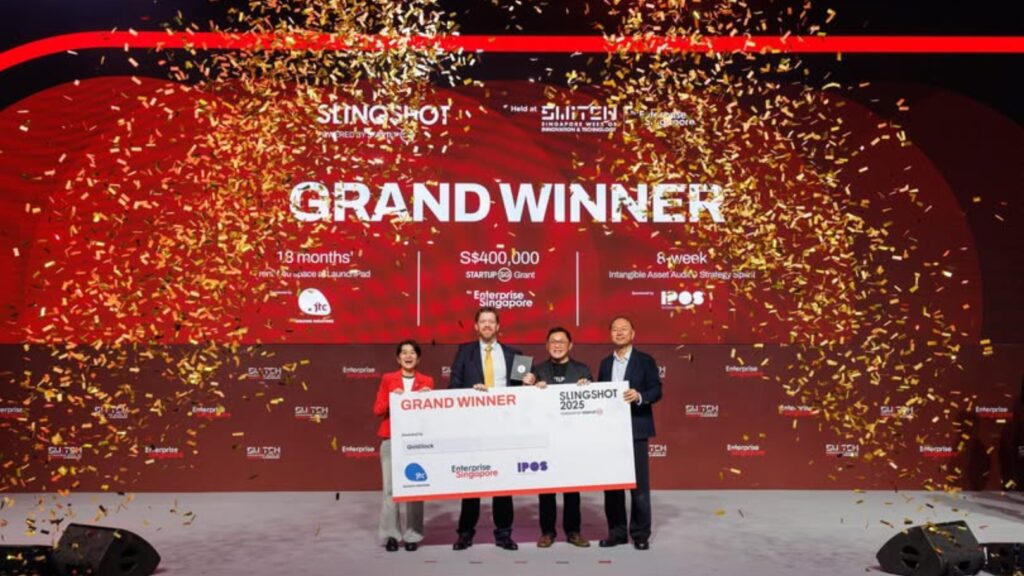
- Goldilock Secure (UK) was named Grand Winner for its remote-controlled cybersecurity hardware that isolates networks to prevent intrusions.
- Loop Dx (Spain) earned first runner-up for its immune-response diagnostic platform for sepsis detection.
- NalaGenetics (Singapore) took second runner-up, showcasing predictive genomics technology for personalized medicine.
Beyond the competition, the Manufacturing, Trade & Connectivity domain addressed how robotics and quantum computing are converging to shape Industry 4.0. The Nordic Pavilion hosted Sweden’s Deputy Prime Minister Ebba Busch, who spoke on Nordic-ASEAN collaboration for clean-energy innovation.
In parallel, the Converge Stage featured panels on funding deep-tech ventures, the rise of corporate venture capital, and the need for harmonized intellectual property frameworks across ASEAN.
As the day drew to a close, EnterpriseSG and NRF executives reflected on the decade-long evolution of SWITCH — from a national initiative to a global convening point for science and entrepreneurship.
KOCCA’s Expanding Creative-Tech Presence
A key highlight this year was the growing prominence of creative technologies. The Korea Creative Content Agency (KOCCA) hosted a booth on the trade floor featuring startups such as VideoMonster, HiStranger, BrainDeck, ConnectBrick, and WiseOnMedia, each blending storytelling, AI, and interactive media.
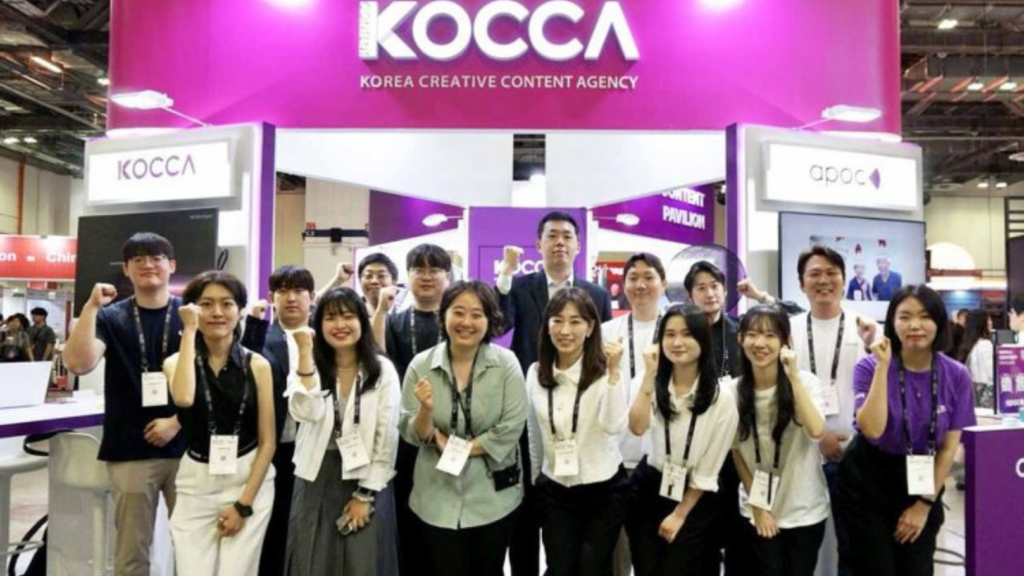
Their innovations ranged from automated video-editing systems and immersive 3D environments to AI-driven content localization tools. Singapore-based media investors and production houses showed strong interest, recognizing Southeast Asia’s growing demand for Korean digital-content formats.
KOCCA’s active participation — combined with its dedicated KOCCA Night Singapore networking event — highlighted how SWITCH’s scope has broadened. Once dominated by hardware and biotech, the event now includes creative media and culture-tech, reflecting the convergence of art, design, and data.
Enterprise Singapore: The Orchestrator of Innovation
Throughout the three days, Enterprise Singapore remained the central node connecting research, startups, and investors. Its initiatives — including the NTU Singapore × Activate Global Fellowship, which supports 40 science entrepreneurs over three years — reinforced the “science-to-market” mission.
EnterpriseSG’s work with A*STAR, Startup SG, and international partners such as KISED and KOCCA underscores Singapore’s ecosystem-building approach. Rather than competing with other hubs, the agency focuses on coordination — ensuring that startups, universities, corporates, and policymakers operate within a single innovation pipeline.
This orchestration is what distinguishes Singapore from other regional centres: a small market with global ambition, sustained by structure and trust.
Building Asia’s Innovation Bridge
Across all three days, SWITCH’s underlying message was consistent — innovation in Asia is no longer fragmented. Delegations from Korea, Japan, Sweden, India, and Chile each used Singapore as a springboard for regional entry. Investors noted that SWITCH 2025 had matured into a “deal-making arena” rather than a trade fair. Discussions extended beyond booths into venture deals, pilot projects, and research collaborations.
The event also revealed how sustainability and digitalization are merging. Quantum startups shared space with agritech innovators; AI companies exchanged ideas with creative-media founders. That diversity reinforced Singapore’s growing identity as an ecosystem where deep-tech meets design thinking.
A Decade Completed, A New Phase Begins
As SWITCH 2025 concluded, delegates left Marina Bay Sands with a clear impression: the next decade of Asian innovation will be built on collaboration, not competition.
From agentic AI and quantum computing to creative media and agrifood sustainability, the event showcased how deep-tech innovation is moving out of labs and into daily life. It also underlined the pivotal role of Enterprise Singapore, NRF, and partners like KOCCA in keeping that innovation connected to global markets.
“SWITCH isn’t just a showcase,” said a Southeast Asian VC during the closing session. “It’s the point where science, creativity, and capital finally meet.”
Ten years on, SWITCH has matured into more than an annual gathering — it’s a strategic bridge linking ideas and industries across Asia. And as Singapore continues to position itself at the intersection of technology, talent, and trade, SWITCH 2025 stands as proof that innovation, when shared, multiplies in impact.

